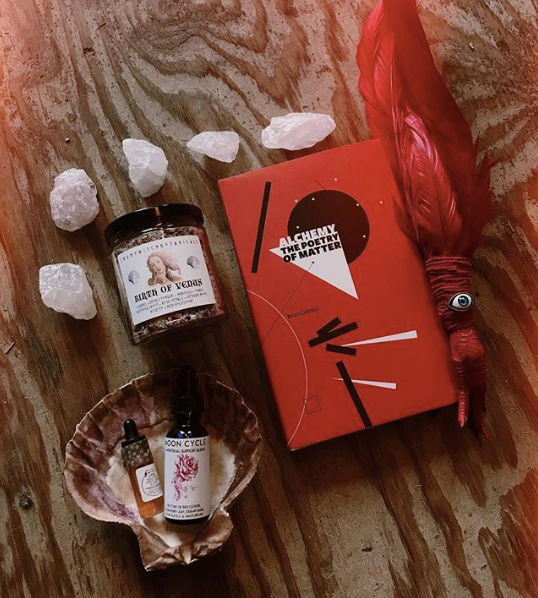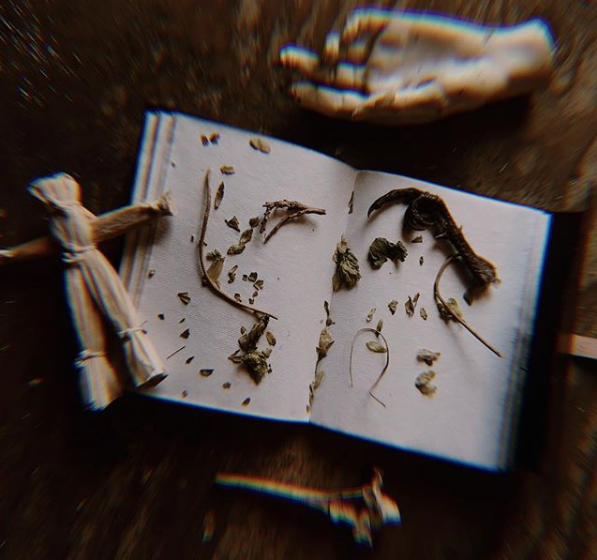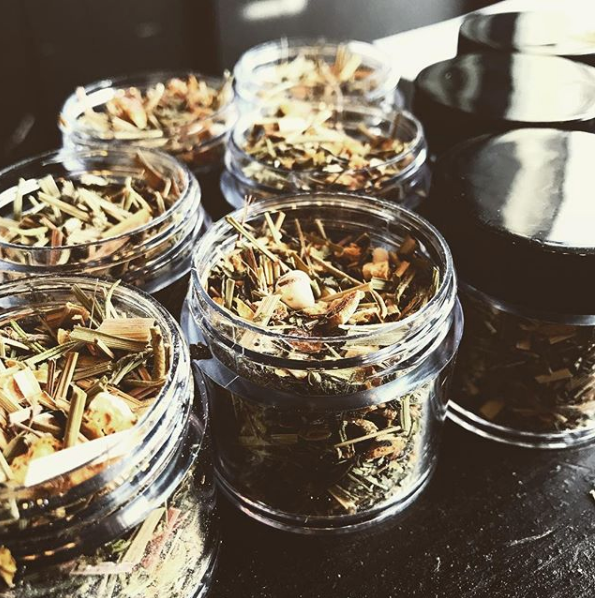Nestled between bustling bars, coffee shops and restaurants off the Jefferson L train stop, Catland Books has a different energy from the businesses around it.
The shop describes itself as a “premier metaphysical boutique and event space” that aims “to serve the local community of Occultists, Yogis, Pagans, Mystics, Thelemites, Witches, Chaotes, and anyone interested in the enhancement of their spiritual self.” As a Bushwick resident who meditates and invests in a spiritual practice, I was intrigued by the shop’s extensive merchandise, including herbs, incense, jewelry, crystals, tarot cards, books and zines. I also noticed they offer events and classes, and since I like to burn incense while meditating, I signed up for a Beginner Incense Making course.
The class was held in a small dimly lit room in the back of the store. There were twelve students to the one instructor, which at first I feared would hinder my learning experience. But I quickly realized that instructor Melissa Madara, who is also a co-owner of Catland, was eager to engage with each student and she encouraged us to ask questions throughout. I don’t have a background in witchcraft and had only been to the store a handful of times to peruse with friends (especially the Astrology section — happy Aquarius season!), but I felt at ease even surrounded by others who described themselves as practicing witches.

As a newcomer I was fascinated not only by Melissa’s expertise, but by how well she communicated with people of all spiritual backgrounds. I asked her what guiding questions she typically asks when a customer enters the store for the first time, and she replied, “What are you trying to do and what do you believe? If you have a devotional practice or you believe in certain Gods and/or deities and that drives your understanding of the world, I’ll gear you in a particular direction. If you’re an atheist and and are mostly interested in learning about herbalism, energetic stuff, astrology and the sciences, I’ll gear you in a different way. What you believe and what your practice is will form how you interact with this world.”
This answer made me question my own sense of spirituality. I had chosen to attend this particular class because I use incense when I meditate, but I realized I hadn’t put a lot of emotional energy or exploration into why I practice the way I do. As I learned about incense, I felt as though I was embarking on a new phase of my journey.
Melissa began with a broad overview of incense, discussing its chemical makeup and historic background. The course was taught like a lecture, but I found myself increasingly engaged and made a mental note to do more research about types and shapes of incense when I got home. As a class, we went to the front of the store to collectively choose herbs we thought would make the best incense blend for our group. Melissa opened dozens of large glass jars, passing them around and encouraging us to smell them and read the descriptions. We settled on a combination that promised to make us feel grounded, and we looked on as our instructor crushed the herbs with a mortar and pestle and carefully weighed them into individual bags for us to take home.

The class certainly taught me the (surprisingly uncomplicated) steps toward making my own incense, but it also provided a space for community, adult learning, and a personal exploration of spiritual practices. At the end I held my small, fragrant red paper bag and found myself wishing I could stay longer to discuss the properties of herbs with my classmates. Even before burning my new incense, I was starting to feel more grounded and present than I had in months. For me, this activity had felt like self-care in action.
Before I left I asked Melissa about the intersection between spiritualism and self-care, and what she thinks of customers using the materials they find at the store for self-care rituals.

“[This is] as valid as any other form of self-care that exists. Any way that people take care of themselves makes me happy,” she explained. “For a lot of people in my personal circle this is a way of understanding and contextualizing the world and maintaining a grip on it that is not available through other spiritual paths. For example, witchcraft offers a direct line to the divine where you can connect with it in a tangible way. It’s a way of contextualizing and categorizing, which I think goes beyond self-care.”
Whether you’re a practicing witch or someone like me who is simply exploring, Catland is a valuable place to visit. Browse their variety of classes to find one that’s right for you, or just pop into the shop. It’s open from 12–8pm every day, making it a perfect pit stop for some post-brunch spiritual discovery.
What are your favorite self-care or spiritualistic experiences in the city? Tag coconutsmag in your IG photos — we might just feature you!
Cover photo by Dan Farrell on Unsplash
All other photos courtesy @catlandbooks on Instagram